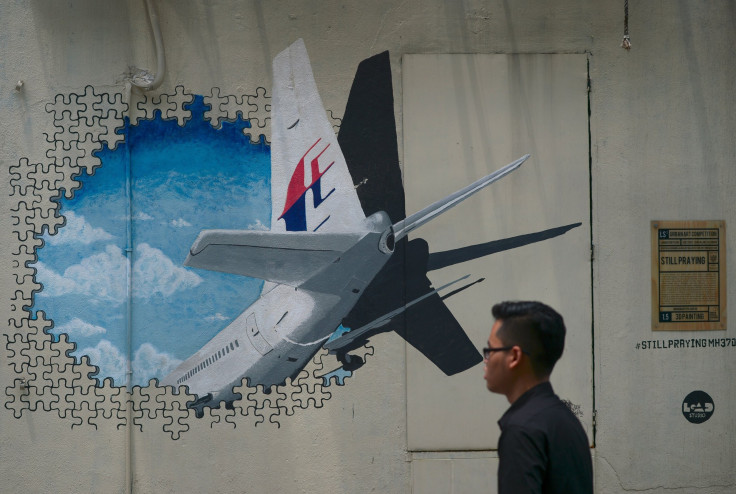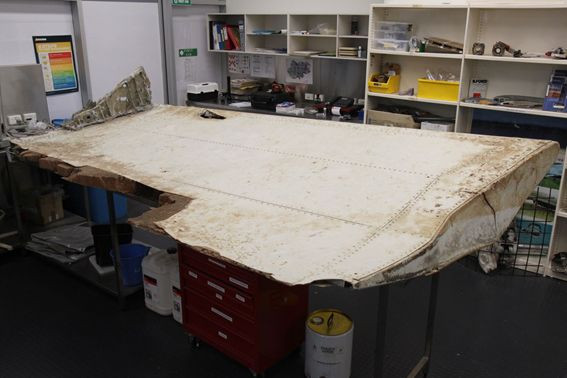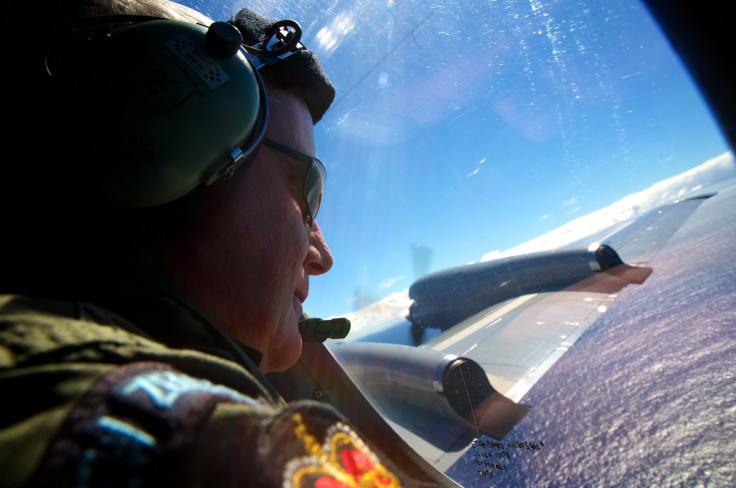Where Did Flight MH370 Go? Death Dive, Hijacked By Terrorists, Cockpit Fire And Other Conspiracy Theories As Search For Missing Plane Ends

The search for Malaysia Airlines Flight MH370 has officially ended with no concrete clues as to the plane's whereabouts, authorities announced Tuesday. The fruitless search for the Boeing 777-200 had been carried out for nearly three years in a remote part of the southern Indian Ocean, costing almost $160 million.
“Today the last search vessel has left the underwater search area. Malaysia Airlines flight MH370 has not been located in the 120,000 square-kilometre underwater search area in the southern Indian Ocean,” read the MH370 Tripartite Joint Communiqué, co-signed by the transport ministers of Malaysia, China and Australia. “Despite every effort using the best science available, cutting edge technology, as well as modelling and advice from highly skilled professionals who are the best in their field, unfortunately, the search has not been able to locate the aircraft."
Flight MH370 went missing on March 8, 2014, with 239 people on board while on its way from Kuala Lumpur to Beijing. Authorities earlier said that the plane may have crashed in a remote part of the southern Indian Ocean. However, no plane debris was found in the search zone leaving the disappearance of the plane as one of the greatest aviation mysteries in modern history.

After the announcement, the next of kin of those on board the jet expressed their anger over the suspension of the search, urging the tripartite to extend the search to a new area.
"First Principles Review Report released on 20th December 2016 by the Australian Transport Safety Bureau (ATSB) recommended a new search area of 25,000 square kilometres (9,650 square miles) north of the present one," the Voice370, a group formed by the families of MH370 passengers, said. "In our view, extending the search to the new area defined by the experts is an inescapable duty owed to the flying public in the interest of aviation safety."
It added, in a statement: "Commercial Planes cannot just be allowed to disappear without a trace. Having already searched 120,000 square kilometres (46,000 square miles), stopping at this stage is nothing short of irresponsible, and betrays a shocking lack of faith in the data, tools and recommendations of an array of official experts assembled by the authorities themselves."

Over the last few months, several debris pieces washed up on the shores of Madagascar, Reunion Island, Mozambique, Tanzania and Mauritius. At least six of the pieces where confirmed to be plane debris and belonging to a Boeing 777-200 jet — the same make as Flight MH370. The debris pieces are currently being examined by Australian authorities.
However, little evidence has turned up since the plane’s mysterious disappearance, giving rise to several conspiracy theories. However, none of the theories have been confirmed by authorities.
Death Dive Theory
Last year, evidence surfaced in a new report that suggested that the pilot of the missing Boeing 777-200 might have taken the plane on a premeditated suicidal flight, giving rise to the "death dive" theory. Leading Canadian aviation expert Larry Vance claimed that the condition of the flaperon debris discovered near Reunion Island in 2015 indicated the plane had its wings extended when it hit the water. As the flaperon wasn't broken, Vance alleged that a human — maybe the pilot, Zaharie Ahmad Shah — had tried to execute a controlled crash or landing.
The Rogue Pilot
According to some theories, someone in the cockpit — most likely the captain or first officer — took control of the aircraft, veered it off course on purpose, and caused it to run out of fuel and crash into the ocean. Nik Huzlan, a Malaysia Airlines captain who knew Flight MH370 pilot Zaharie for decades, said that it was beyond imagination to think the pilot would do such a thing, but told the New York Times: “Your best friend can harbor the darkest secrets.”

Hijacked By Terrorists
Some people speculated that the Malaysia Airlines jet was hijacked by terrorists. Russian newspaper Moskovsky Komsomolets reported in April 2014 that the plane had been taken over by unknown terrorists and flown to Afghanistan, where the crew and passengers are being held captive. Pilot and science journalist Jeff Wise also reportedly sparked a complicated theory in New York Magazine suggesting that hijackers — possibly on orders from Russian President Vladimir Putin — broke into the jet’s electronics and equipment bay, tampered with the data there to throw off satellite pings and flew the plane north to Kazakhstan.
Other theorists also believe terrorists hijacked the plane and crashed it into the sea, after the revelation in 2015 that at least two of the passengers on board were traveling on stolen passports. But Malaysian officials said the two men had no apparent links to terrorist groups, according to BBC News.
A Cockpit Fire
One popular theory is that there was a fire on board MH370, possibly electrical or from an overheated tire on takeoff, which killed all passengers and crew. A fire on the plane probably caused the crew to pass out from smoke inhalation, and the plane continued on autopilot until it ran out of fuel, eventually crashing into the ocean.
Burning Lithium-Ion Batteries
A new theory proposed by a U.S. pilot to explain the disappearance of Flight MH370 claimed that the plane was filled with deadly carbon monoxide from burning lithium-ion batteries on board before it crashed into the southern Indian Ocean. Bruce Robertson, in an analysis posted on his website, claimed that Zaharie succumbed to the fumes, but co-pilot Fariq Abdul Hamid survived long enough to turn the plane around and place it into a descent in an attempt to make an emergency landing. However, he also succumbed to the carbon monoxide, leaving the jet on autopilot for several hours until its fuel ran out and the plane crashed.
Shot Down
London-based journalist Nigel Cawthorne wrote in his book “Flight MH370: The Mystery” that the Boeing 777-200 was accidentally shot down during a joint Thai-U.S. military training drill. The claim was made based on the eyewitness testimony of a New Zealand oil rig worker, Mike McKay, who said that he saw a burning plane go down in the Gulf of Thailand shortly after Flight MH370 lost radar contact with air traffic controllers on March 8, 2014.
A Second Bermuda Triangle
Some theorists also raised concerns over an existence of a second Bermuda Triangle stating that Flight MH370 entered another Devil’s Triangle located in Asia in the Indian Ocean. A number of aircraft and ships are said to have disappeared under mysterious circumstances in the patch of sea in the North Atlantic Ocean known as the Bermuda Triangle, or the Devil’s Triangle.
© Copyright IBTimes 2024. All rights reserved.





















